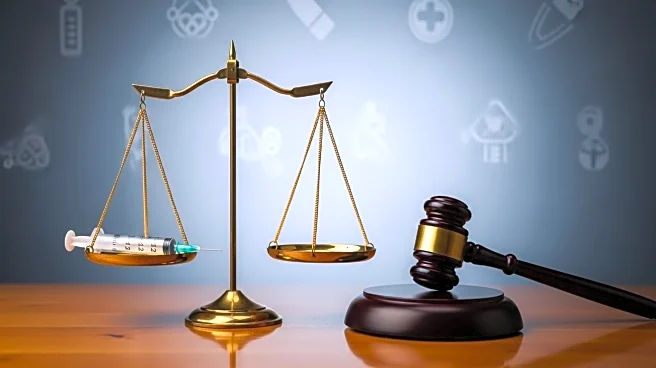What's Happening?
Robert F. Kennedy Jr., the Health and Human Services Secretary, appeared before a Senate committee to address recent changes in the leadership of the Centers for Disease Control and Prevention (CDC) and discuss vaccine policies. During the hearing, Kennedy defended his decision to dismiss the CDC director, a move that has sparked significant debate. The committee sought clarity on the reasons behind the leadership change and its implications for public health policy. Kennedy's testimony aimed to reassure lawmakers about the continuity and effectiveness of the CDC's operations amidst these changes.
Why It's Important?
The leadership change at the CDC is crucial as it impacts the agency's ability to manage public health initiatives, including vaccine distribution and disease prevention strategies. The dismissal of the CDC director raises concerns about potential disruptions in ongoing health programs and the agency's future direction. Lawmakers and public health officials are closely monitoring these developments, as they could affect the nation's preparedness for health emergencies and the implementation of vaccination campaigns. The hearing underscores the importance of stable leadership in maintaining public trust and ensuring effective health policy execution.
What's Next?
Following the Senate committee hearing, further scrutiny of the CDC's leadership and policies is expected. Lawmakers may push for additional oversight or propose legislative measures to ensure transparency and accountability in the agency's operations. The Health and Human Services Department may also face pressure to appoint a new CDC director swiftly to restore confidence in the agency's leadership. Stakeholders, including public health experts and advocacy groups, are likely to continue voicing their concerns and recommendations regarding the CDC's future direction.
Beyond the Headlines
The leadership change at the CDC highlights broader issues of governance and accountability within federal health agencies. It raises questions about the balance between political influence and scientific integrity in public health decision-making. The situation may prompt discussions on the need for reforms to safeguard the independence of health agencies and ensure that leadership changes do not compromise public health objectives.









